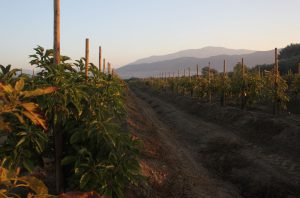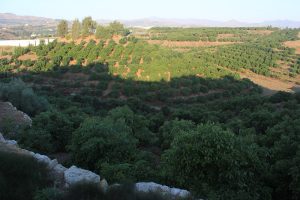As part of our sustainable development and environmental policy at Salsa Agrícola, we are committed to optimizing natural resources. In this sense, whenever possible, we try to reduce the consumption of chemical fertilizers and promote those of organic origin. However, it’s interesting to analyze what organic fertilizers are and why they are used.
Fertilizers play a crucial role in the healthy growth of plants, which is vital both in agriculture and gardening. Although fertilizers have a long history, and in fact, organic ones emerged before synthetic fertilizers, it seems that in recent years, organic fertilizers have gained more popularity. Furthermore, they are increasingly favored by farmers and large-scale food producers.
Organic fertilizers, also known as organic manures, are derived from biological materials or natural waste, such as plant and/or animal remains. Unlike synthetic fertilizers, which are manufactured from industrial chemical compounds, organic fertilizers consist of substances that already exist in nature, such as manure, compost, algae, bone meal, and plant residues. These are used to improve soil quality and nourish plants in a balanced and sustainable way, as they provide essential nutrients like nitrogen, phosphorus, and potassium, as well as other micronutrients such as calcium, magnesium, and sulfur, all necessary for optimal plant development.
Different Categories and Benefits
Organic fertilizers can be classified into several categories based on their origin, including animal-based, plant-based, or mineral-based. Some notable examples are manure, compost, bone, blood, feather, or fish meal, as well as gluten, cottonseed, soybean meal, or alfalfa pellets; guano; peat; ash; green sand; unprocessed natural potassium sulfate; or limestone, among other types of organic fertilizers.
Organic fertilizers have gained popularity, especially in eco-friendly and sustainable agricultural practices, due to their multiple benefits, such as:
- Improved soil health. They nourish plants and help improve soil structure and biology, as they provide organic matter that promotes moisture retention, better aeration, and the activity of beneficial microorganisms. This all contributes to more fertile soil in the long term.
- Slow and continuous nutrient release. Organic fertilizers release nutrients gradually, ensuring that plants have access to them for a longer period, promoting steady growth.
- Sustainable and eco-friendly. Since they are made from natural materials, organic fertilizers reduce dependence on non-renewable resources and industrial chemicals. Their use helps protect the environment by preventing soil and groundwater contamination with toxic products.
- Lower risk of over-fertilization. Unlike synthetic fertilizers, which can sometimes overfeed crops and damage plant roots or cause salt buildup in the soil, organic fertilizers, due to their natural nutrient release, rarely pose this risk.
- Increased biodiversity. Soils treated with organic fertilizers contain organic soil carbon, which benefits bacteria responsible for decomposition and nutrient cycling. As a result, these soils tend to be richer in microbial life and earthworms, which naturally enhance soil fertility.
Despite these benefits, organic fertilizers also have some disadvantages, such as:
- Lower nutrient concentration compared to synthetic fertilizers, meaning they need to be applied in larger quantities.
- Slow effect. The impact on plant growth is gradual due to the slow release of nutrients, which can be a drawback when nutrients need to be supplied more urgently to a crop.
When opting for organic fertilizers, it’s essential to ensure they are well-composted or decomposed before use; otherwise, they may introduce pathogens or low-quality seeds into the soil, negatively affecting the crops.
In conclusion, although organic fertilizers require more time and quantity than synthetic ones, their long-term benefits make them an option that we want to progressively incorporate into Salsa Agrícola crops whenever possible. In doing so, we advocate for a healthier approach to food cultivation and the preservation of our planet.




